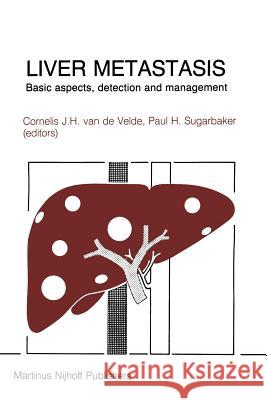Liver Metastasis: Basic Aspects, Detection and Management » książka
Liver Metastasis: Basic Aspects, Detection and Management
ISBN-13: 9789400960534 / Angielski / Miękka / 2012 / 383 str.
B. CADY Hepatic met, ' tasl S present one of the major therapeutic challenges of cancer patien: management, for it is the destruction of vital organ function that makes cancer fatal, not local tumor growth. The process of tumor cell dislodgement from the primary cancer, their spread through the lymphatic and hematogenous channels, their lodgement in distant sites, and their subsequent progressive growth tax our comprehension a'ld i. -ustrate our therapies. The proceedings of this International Con, t ss on Hepatic Metastasis address these aspects of metastases to t: '. >2 _ . ver, and predominatly focus on metastatic colon cancer because of t . s frequency, its prominent hepatic only pattern of spread, and enticing preliminary data about prevention and control of small sub . '(ts of the afflicted population. Predictably, the "false technologies" of Dr. Lewis Thomas that involve surgical, radiotherapeutic and chemo therapeutic attack on these metastases after elaborate diagnostic studies take precedence because of the clinical imperatives of sick patients. This is displayed in the preponderance of papers and in terest in various diagnostic scanning techniques by means of radio isotopes, radiographically useful dyes, biochemical markers, interest in developing accurate staging systems to categorize patients for therapeutic comparisons, and interest in elaborate, and expensive, technology to increase the effectiveness of chemotherap utic agents that are of limited benefit with simple intravenous administration. Behind this clinical enthusiasm, however, lies the research to develop the "true technology," in Thomas' words, that will prevent such clinical catastrophies as hepatic metastases.











